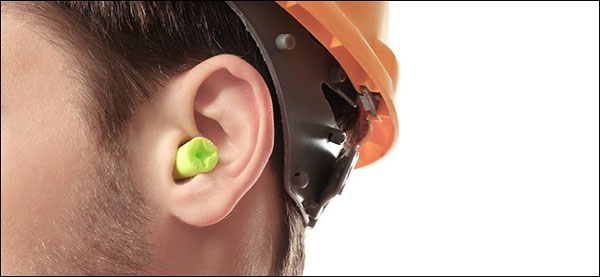Hear how loud your ears are going to be deaf?
Many people often have a habit of listening to loud music or using headphones often, and some people have to live and work in an environment with a high noise intensity affecting their ears. So, how loud is the sound and human ears can withstand the sound intensity?
Sound intensity of 85 dB or more should be avoided
If there is continuous noise exposure and with increasing volume, the human ear is capable of permanent deafness at a sound level of over 85 dB (decibels).

So how big is 85 dB sound? To make it easier to imagine, you can imagine that the sound level opens the window when the car is moving at a speed of 81km / h, then the sound is about 89 dB. If you are exposed to 85 dB noise for about 8 hours continuously, you may have hearing damage.
In our ears there are a few small hairs called sterocilia, when sound waves enter the ears, they will vibrate and be converted into neural information that your brain can understand. If exposed to long lasting sounds, small ear hairs will become depressed and stop shaking. At that time, your brain will not receive any sound signals.
However, after a night of rest, these small hairs can grow back. Occasionally long-term exposure to loud noise, your ears will still tolerate but if your continuous hearing contact will be damaged. Because the emotions of the ear hairs will be slightly reduced after each depression. At some point, they won't regrow, stop working, and your hearing will be lost forever.

In addition, people with hearing loss cannot tolerate sounds of higher volume. Whether your ears are normal or broken, the common threshold for general hearing loss is still 85 dB.
Most people can tolerate eight hours of continuous exposure in 85 dB intensity. So people who often have to work in environments with big sounds like construction workers, employees at bars and sound engineers need not worry.
What about noise above 85 dB?
The ability to withstand the noise of the ears will decrease corresponding to the increased sound level. For example, at 90 dB, your ears will have permanent hearing loss if you listen continuously for more than 4 hours, at 95 dB for more than two hours and if up by 110 dB, it takes only 1 minute 29 seconds to be your ears 'broken'.
You can download and install some decibel sound meter applications on your phone to measure the sound in your working environment more accurately like Sound Meter, or Sound Analyzer .
If you have to work in an environment with frequent loud noises, look for corrective measures such as wearing earplugs to keep your ears safe. Currently, the market has many different modern earplugs, affordable so that users can choose. Some earplugs are capable of lowering the decibel level without reducing sound clarity or preventing noise effectively.

When using headphones, how much music should I listen to?
Music is a joy in life, helping you relax. But according to experts, to help your ears stay healthy, when wearing headphones listening to music, watching movies, you should comply with the 60-60 principle: the volume does not exceed 60%, the time to use headphones continuously does not exceed 60 minutes. When listening at high volume, you must shorten the time.
You should read it
- ★ 10 best online music creation, sharing and listening services
- ★ When you have problems at work, open a song you love and listen to
- ★ Listen to music on YouTube? You should not ignore these 5 websites and extensions
- ★ Headphone, earphones are shy, noisy, hard to hear and how to fix them?
- ★ How to play Hi-Res sound on iPhone or iPad